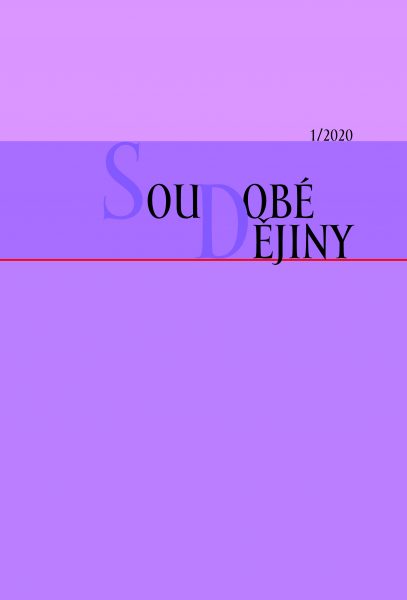„Nechtěl jsem socialismus ani romantizovat, ani démonizovat“
“I did not want to romanticize socialism, nor demonize it”
An interview with Alexei Yurchak
Author(s): Přemysl Houda, Veronika HoudováSubject(s): Recent History (1900 till today)
Published by: AV ČR - Akademie věd České republiky - Ústav pro soudobé dějiny
Keywords: Soviet Union; late socialism; Soviet society; Václav Havel
Summary/Abstract: Alexei Yurchak, a Russo-American anthropologist, was interviewed in July 2019by translator Veronika Houdová and historian Přemysl Houda, who also translatedthe interview from English into Czech. Substantially abridged, the interview waspublished under the title „Zelináři měnili systém zevnitř: Alexej Jurčak o pozdnímsocialismu“ [“Greengrocers were changing the system from inside: Alexei Yurchakon late socialism”] in the “Salon” annex of the Právo daily on October 3, 2019. AsYurchak’s propositions have been resonating quite strongly in the Czech historiographyof Communism in recent years, being both accepted and prompting polemics,the editorial board of Soudobé dějiny accepted the authors’ offer to publishthe interview in the original, unabridged form (and to provide it with footnotes).Alexei Vladimirovich Yurchak was born in 1960 in Leningrad; in the second halfof the 1980s, he was the manager of the Leningrad rock band AVIA. After thedisintegration of the Soviet Union, he moved to the United States where he obtaineda doctorate in cultural and linguistic anthropology at the Duke University,Durham, North Carolina, in 1997. He is now an Associate Professor at the Departmentof Anthropology of the University of California in Berkeley. The interviewmainly revolves around Yurchak’s book Bylo to na věčné časy, dokud to neskončilo:Poslední sovětská generace [Everything was forever, until it was no more: The lastSoviet generation], which was published in Czech in 2018 (the original US editionwas published in 2006, the amended Russian edition in 2014) and proposeda new concept of the Soviet late socialism. The author explains the intentions hewrote the book with, explains his propositions, reacts to some critical comments,and argues with Václav Havel’s (1936–2011) interpretations on “living in truth”and the nature of the society and political system in the period of late socialism,which Havel had formulated in his essay Moc bezmocných [Power of the powerless]in 1978. Yurchak also speaks about the importance of language in the formationof social reality and on Putin’s Russia today.
Journal: Soudobé Dějiny
- Issue Year: XXVII/2020
- Issue No: 1
- Page Range: 127-141
- Page Count: 15
- Language: Czech

